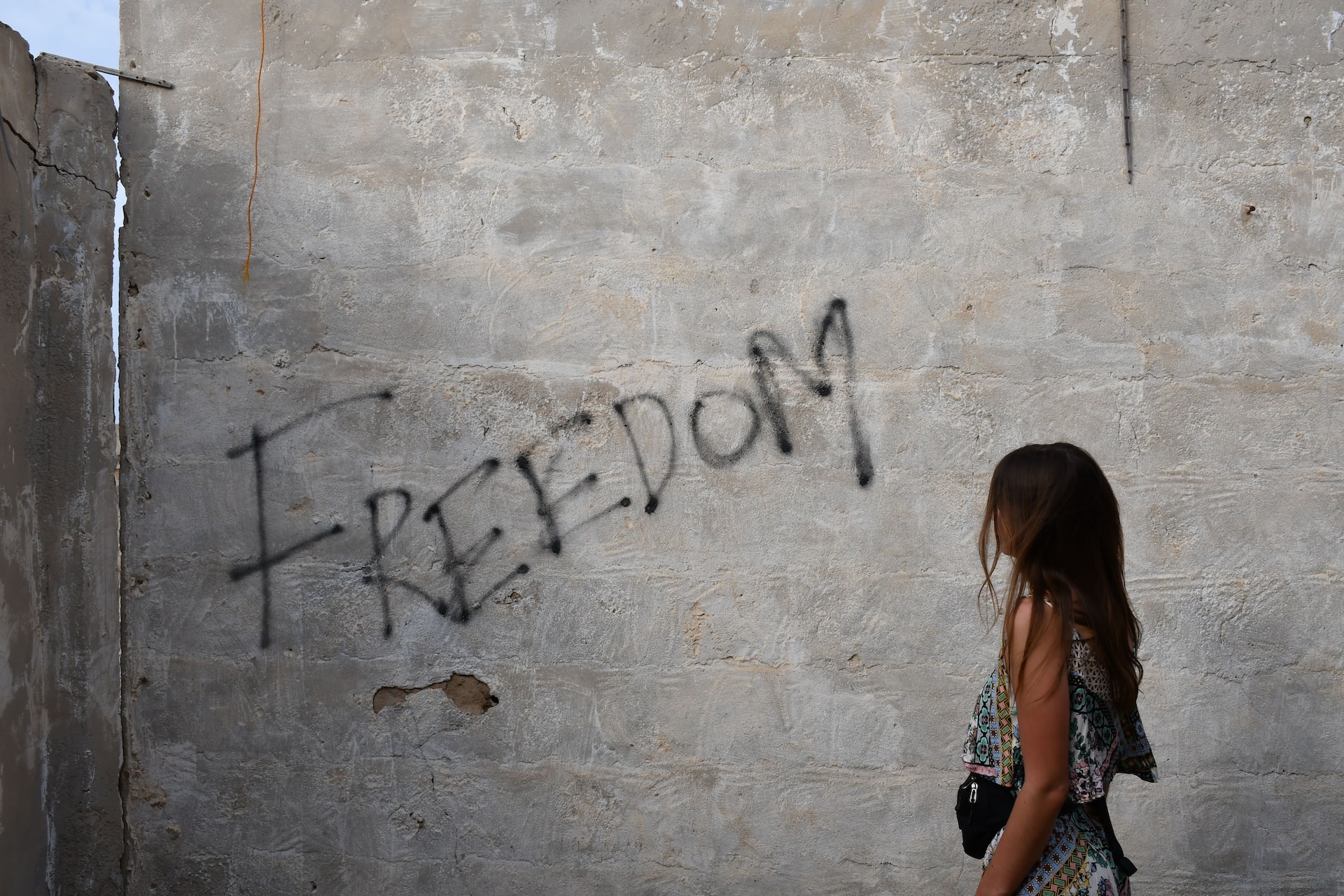Recently I had a powerful dream. In it, I was sleeping next to a person who started touching me in unwanted ways, and I turned toward him and told him very clearly and directly that it was unacceptable, not consensual, and that if he continued he was knowingly violating my boundaries.
The person left in a huff, and my dream avatar got angry, thinking this person thought of himself as the victim. I followed him out the door, determined to confront him and force him to see how he was really the asshole.
Suddenly dream-me had a moment of clarity: it didn’t matter if he felt like the victim. All that mattered was that I was safe and the person was gone. What meaning he made of the situation was none of my business, and pursuing it would only get me more hurt.
I woke with pride that my dream-self was able to speak for himself and set a forceful, if dramatic, boundary. Prior dreams showed me in similar situations feeling frozen and small, unable to resist. Or I would attempt to speak and find my mouth unable to push the words into the air, or the sound would be drowned in noise. This speaks to my personal story around feeling invisible and unheard, struggling to assert myself, and this new iteration feels like a marker of growth.
Most intriguing was the clarity at the end of the dream, catching myself in the desire to condemn one who would never accept he was wrong. In my life, it’s taken me a long time to see how much I get hurt when that tendency takes over. I’ve gotten into all kinds of weird manipulative indirect interactions in the hopes I could persuade or trick someone into admitting they’re wrong and the asshole, and often it’s ended up making me the asshole.
What the dream offers me is the notion that setting a clear, unambiguous boundary—a strong no without concern for another’s feelings—frees me from both sides of that toxic victimhood. When I could only endure harm quietly, that rage and vengefulness would inevitably follow. Instead of breaking off connections with harmful people, I would stay entangled with them while trying to make them see my hurt, and end up more hurt.
When our lives are such that we feel unable to protect ourselves from harm, rage and powerlessness is inevitable, and we may become crusaders. Unable to heal our own buried feelings of powerlessness and trauma, we may become crusaders against others causing similar harm. These are efforts of exerting control over self and others, trying to control the conditions of life to prevent further harm from happening.
For me, power and control are two ends of a spectrum. Power is the embodied knowing that I can influence my inner and outer worlds toward my safety and meeting my needs and desires. That when I know what I need, I can get it. That when I need something to stop, or to start, I can make it happen.
The efforts to exert control over another, and the acceptance of another’s control, both require the giving away of power. Controller and the controlled are hooked to each other, like the two Piscean fish, unable to swim without pulling the other along.
We may imagine that the control of abusers, dominators, and authoritarians gives them freedom, but in practice they are unable to tolerate dissent or the normal conflicts of adult relationships and engage in compulsive moves to reassert control. Similarly, we tend to imagine the passive controlled victim who utterly surrenders, but in practice even the most assaulted person has all manner of ways in which rebellion, resistance, undermining, and sabotage emerge. Humans are creatures who can never be fully tamed, even unto themselves.
In my dream, the creepy sleeper attempted to exert control by touching my dream-self’s body in unwelcome and unpermitted ways, and my dream-self sought control over the narrative by chasing him down to persuade him of his wrongness. Saying no, and letting go of control over the story, brings us to our personal power and freedom.
Even if we get hurt while expressing our power, that experience is profoundly different from being harmed and powerless, which is one of the conditions that gives rise to post-traumatic stress.
Being hurt while knowing we stood for ourselves and did not participate in our own victimization offers a psychic protection. Instead of shame, we might feel gratitude and pride in ourselves. The dignity we have not allowed to be taken is a balm against the humiliation of loss. Liberation is greater than the smallness of bullies and the resentment of the righteous.


